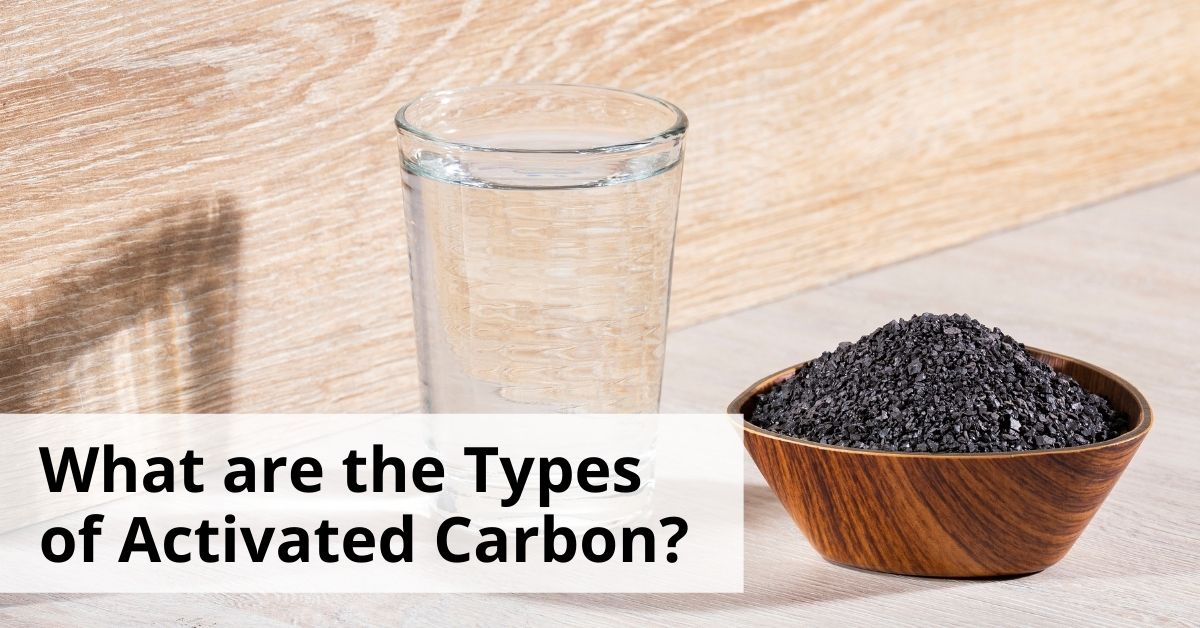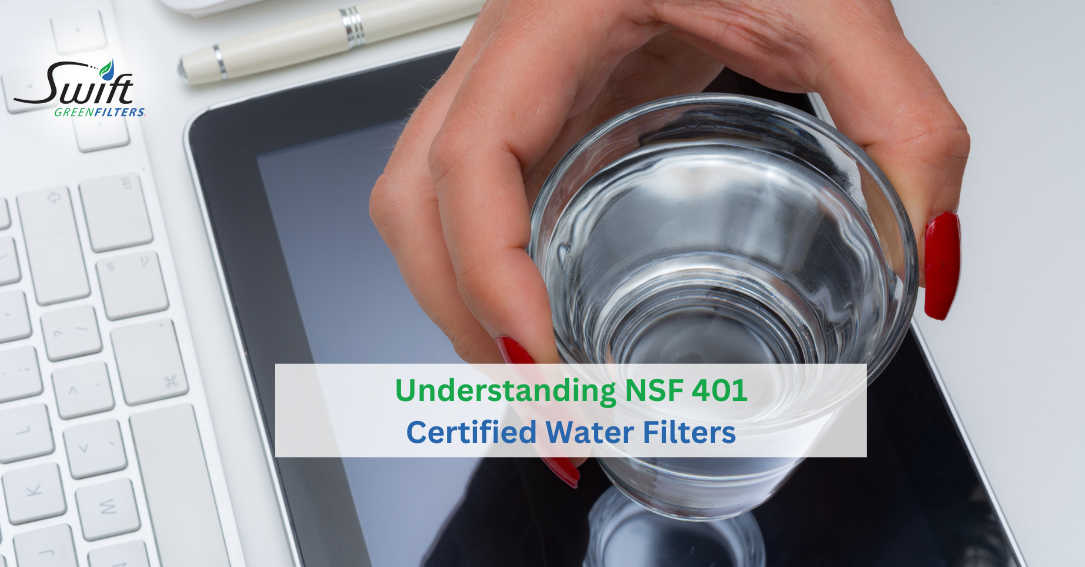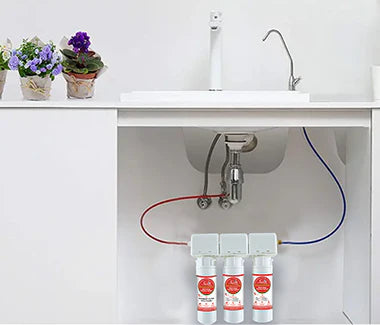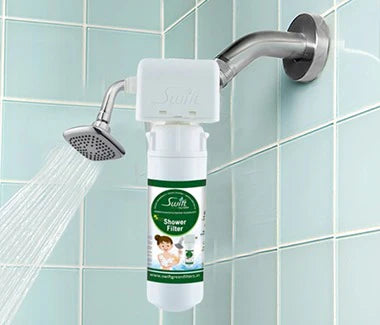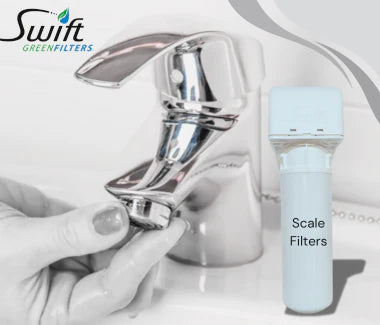What is Hard Water?
Posted by Swift Green Filters on

What is Hard Water?
For those people who question themselves, “what is hard water?” Well, let's dive into all the details! Hard water simply means that it contains minerals like magnesium and calcium. You see, when rainwater, which is naturally soft, falls on soil like limestone or chalk, it picks up these minerals along the way. So, by the time it reaches your home, it's become hard water. The downside is that the higher mineral concentrations in hard water can cause limescale build-up, making your water look less than clean. Not only that, but it can also reduce the efficiency of your appliances, shortening their lifespan.
Types of Hard Water
There are two main types of hard water. Let's discuss these types of hard water.
Temporary Hard Water
Temporary hardness in water is caused by the presence of bicarbonate minerals such as magnesium bicarbonate and calcium bicarbonate, which dissolve in water and produce calcium and magnesium cations, as well as carbonate and bicarbonate anions. The presence of these cations and anions results in hard water. However, temporary hardness can be eliminated by boiling the water.
Permanent Hard Water
Permanent hardness of water is caused by the presence of calcium sulfate/calcium chloride or magnesium sulfate/magnesium chloride ions. These ions make it challenging to remove the hardness of water, even through boiling. The only effective method to reduce permanent hardness is through the use of hard water softeners, as natural methods are not sufficient.
What does hard water usually contain?
Hard water contains a number of minerals. Here are the following minerals that make your water Hard.
1) Calcium2) Magnesium
3) Small amounts of other minerals
What causes hard water?
Water can dissolve chemical compounds. When rain falls on sedimentary rocks, it dissolves small amounts of chemical compounds with it. These chemical compounds are calcium and magnesium.
As the water that contains minerals travels, it starts to get mixed with rivers, lakes, and reservoirs. Through different water supply systems, it gets entered into our house and then used for various purposes.
How do you know if you have hard water?
Hard water leaves white, chalky spots on the utensils, and clothes fall rough and dull. It builds up limescale on faucets and leaves ugly stains on white porcelain.
Hard water is not beneficial for skin and hair, it makes them look dull because hard water doesn’t rinse away completely. As showers and faucets are clogged, water pressure gets lowered. These are signs that one can identify and know that they have hard water.
How is water hardness measured?
Hard water is measured in grains per gallon. If you have difficulty with soap scum, you should test for hard water. To test the hardness of the water at home, you can use hard water testers available in the market.
What are the advantages of hard water?
Here are some of the advantages of hard water, you need to know about:
1) It has high concentrations of minerals.
2) As both calcium and magnesium are abundant in hard water. As a result, drinking hard water makes your bones and teeth stronger.
3) Due to the right mix of calcium and manganese, it helps in curing constipation.
4) Hard water tastes better than soft water.
What are the disadvantages of Hard Water?
Given below are the disadvantages of hard water.
1) Hard water leaves spots on utensils.
2) Clothes do not get clean due to the lack of lather formation.
3) It may use more energy than soft water.
4) It can reduce the efficiency and health of home appliances.
5) It may cause skin irritation and dryness.
6) Hard water not only damages the pipe but can also clog it.
What are the hard water solutions for the home?
As there are high concentrations of minerals, hard water can sometimes leave behind a chalky scum called limestone. You can obstruct this by-
1) Decrease the temperature of your hot water to 60 degrees.2) Put a metal scale collector in your kettle and empty your kettle if you have not used it for a while.
3) Use a water softener to soften your hard water
4) As we all know that hard water contains calcium, it can be made highly reactive by using acids like vinegar.
5) Using appliance cleaner solutions can help to lengthen the lifespan of the appliances.
What is water softening?
A water-softening system works by rushing hard water through a resin — a sticky, insolvable substance from definite trees and plants — that’s covered with positively charged sodium ions.
The gathering of sodium basically replaces the magnesium and calcium in the water. Water softening units require regular maintenance, and sodium pellets need to keep the resin electrically charged.
There are also systems that use magnets, citric acid, or other means of decreasing the calcium and magnesium gatherings in the water.
Is water softening safe?
Bacteria and fungi can be found on the resin of a water-softening system, so to keep the water safe cleaning and maintenance should be done regularly.
If someone in your home is on a low-sodium diet, you should have a word with the vendor of the softening system to know how much sodium is being put into the water.
If you still have to worry about your health then reach out to a cardiologist about how water softening could affect your blood pressure.
Conclusion
This is all you need to know about hard water and how you can soften it at home if you are facing a problem by using hard water. We hope that people who have this question, "What is hard water?" must have found the answer to their question.
Shop By Category
Swift Green Filters offers wide variety of filtration product

This multistage filter is an excellent alternative for water purification.
Swift Green Filters is the company's own brand that specialized in multistage filters.
In other words, it is unconnected to the other brands, yet it meets your filtering requirements.
Swift is not responsible for damage caused by installation or equipment errors. Max liability is two times the cost of the product.

We Have
Awesome Discounts
Subscribe to our newsletter to get discounts.





